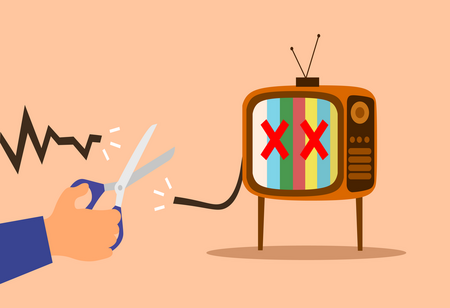Disney, Fox, and Warner Bros. Discovery Forge Path to Cable TV's Demise
By Consultants Review Team
 Disney, Fox, and Warner Bros. Discovery are gearing up to introduce an "all-inclusive premier" sports streaming service, potentially signaling the demise of cable TV as we know it. This joint venture, in which each company would hold a one-third stake, is slated for launch later this year.
Disney, Fox, and Warner Bros. Discovery are gearing up to introduce an "all-inclusive premier" sports streaming service, potentially signaling the demise of cable TV as we know it. This joint venture, in which each company would hold a one-third stake, is slated for launch later this year.
According to a press statement, subscribers to this service would gain access to a comprehensive array of linear sports networks, encompassing ESPN, ESPN2, ESPNU, SECN, ACCN, ESPNEWS, ABC, FOX, FS1, FS2, BTN, TNT, TBS, truTV, as well as ESPN+.
However, it's important to note that while this service aims to cover most major sports offerings currently available on cable TV, it won't feature everything. Notably absent are networks like CBS and NBC, although their NFL games are broadcast over the airwaves for free. Additionally, certain sports content can be found on streaming platforms such as Peacock and Paramount+.
Pricing details for this forthcoming streaming service remain undisclosed. Nonetheless, given its substantial implications for the industry, it poses a significant threat to the traditional cable TV model.
Cable TV has been steadily losing ground to cord-cutting for years, with entertainment programming increasingly migrating to on-demand streaming services like Netflix. However, sports and news have largely remained tethered to cable bundles, retaining viewership. With the emergence of this new streaming service, there's a prospect that some sports enthusiasts may opt to sever ties with cable altogether, particularly if they can access NFL games via a digital antenna.
The potential exodus of sports fans could exacerbate the challenges faced by cable TV, especially considering the waning interest among younger audiences in cable news. The median age of cable news viewership remains notably high, indicating a generational shift in viewing habits.
While this development may spell trouble for cable TV providers, they have been preparing for such a scenario for some time. Companies like Charter have already expressed willingness to shift away from the traditional cable TV model, instead focusing on providing internet services, which are deemed more lucrative.




